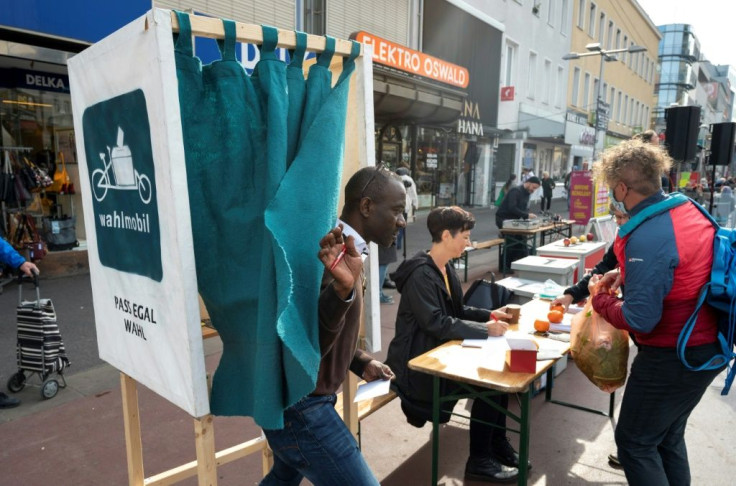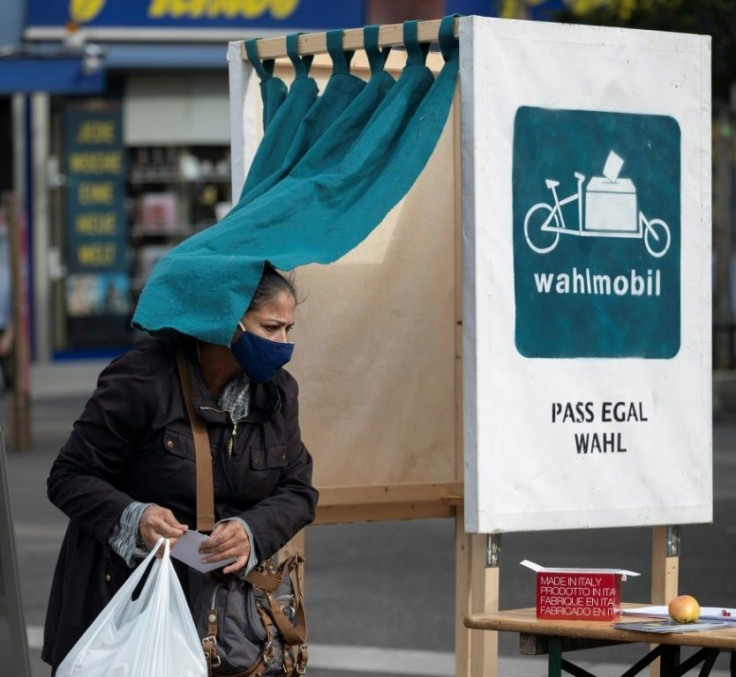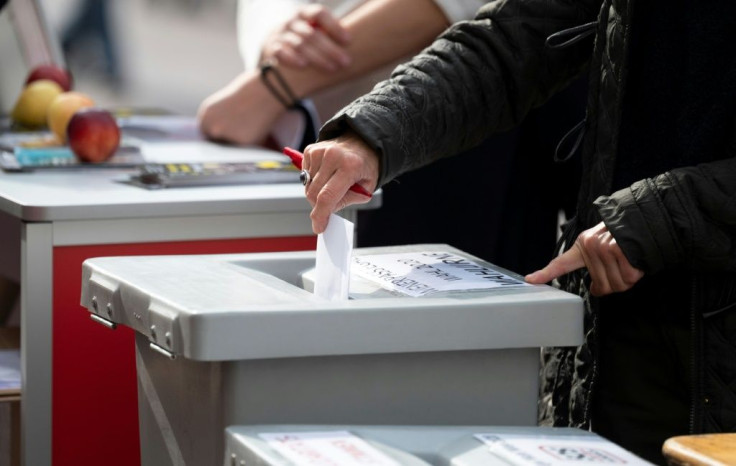'Democratic Deficit' As Foreigners Barred From Vienna Council Vote
Vienna residents will elect the city council on Sunday but almost a third of them will not vote as they are foreigners, sparking criticism that the ballot is inherently unfair.
Austria has one of the highest proportions of foreign residents in the EU. In the cosmopolitan capital, almost a third of 1.9 million residents are non-Austrian nationals and they do not have voting rights apart from local elections in their district.
Some of them could be found at a mock polling station on one of Vienna's main shopping streets set up by an anti-racism NGO to draw attention to their plight.
Among them is Moritz Knoll, who can't vote even though he was born in Austria.
"I can't vote because I've been a German citizen since birth," he says, adding: "If you pay taxes to the Austrian state I think you should be able to vote."

Also in line to cast a mock ballot is Kelly Ortega, a Colombian woman in her thirties.
Ortega has lived in Austria for nine years but says applying for Austrian citizenship would mean "losing a part of my identity".
Austria only allows dual citizenship in exceptional cases so those who apply have to renounce their other nationality.
Sociologist Rainer Bauboeck said this was one reason why on average only seven foreigners out of 1,000 become Austrian citizens every year.
As a result, there are certain districts where only a minority of those of voting age are actually eligible to go to the polls.
Asked about this at a recent campaign event, Vienna Mayor Michael Ludwig of the centre-left Social Democrats (SPOe), said that there were other ways for foreigners to get involved in civic life.

Ludwig, who is the overwhelming favourite to win re-election, told AFP that in any case the question of voting rights for foreigners was "a decision that rests with central government".
The conditions for becoming an Austrian citizen have turned into a veritable obstacle course in recent decades, particularly under governments containing the anti-immigration far-right Freedom Party (FPOe).
The income requirements alone would disqualify 60 percent of blue-collar female Austrian workers if they had to apply.

The fees to have one's application considered run to thousands of euros. A good level of German is required as well as at least ten years' residence.
And being born in Austria makes no difference at all, no matter how long one's family may have been settled in the country.
The SPOe, along with the Greens and the liberal NEOS party, have said they would be in favour of loosening the requirements.
But the conservative People's Party (OeVP), the senior partner in the current governing coalition, is against this.
"Austrian citizenship is a precious asset," OeVP Interior Minister Karl Nehammer said in a statement last year.
He said the current system promotes integration.
The mock polling station was organised by the SOS Mitmensch NGO, which says that the city's "representatives are losing legitimacy" given that large swathes of residents are ignored.
That figure has doubled over the past 20 years and now stands at an all-time high.
SOS Mitmensch points out that well-heeled districts with fewer immigrants end up over-represented on the city council.
"That has consequences on the wellbeing and feeling of belonging" of non-Austrian residents, says SOS Mitmensch's Gerlinde Affenzeller.
"In concrete terms 30.1 percent of voting-age people in Vienna are not able to vote because they don't have an Austrian passport. And we are drawing attention to this democratic deficit."
Judith Kohlenberger, researcher into integration issues at Vienna's University of Economics and Business, says the injustice is inherent in the fact that the city would not have been able to function during the coronavirus lockdown in the spring had it not been for foreign delivery workers, supermarket cashiers and care workers.
"At school the children in these families learn civics lessons but these are just theoretical because they've never seen their parents queue up at a polling station on a Sunday," she says.
Back at the mock polling station, Tufan Yildiz, recently arrived from his native Germany, heads into the booth after Ortega to mark his ballot paper, "unfortunately not for real".
"It's like in a family: if one sibling is always neglected, there's a good chance they'll become a problem child," he says.
© Copyright AFP 2024. All rights reserved.




















